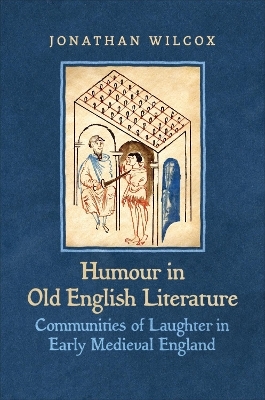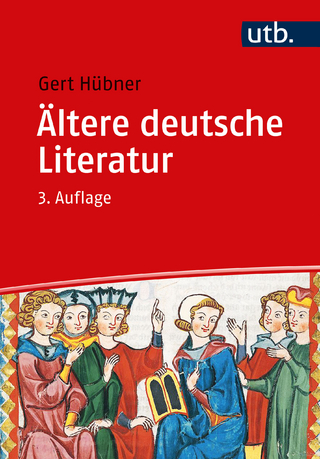
Humour in Old English Literature
Communities of Laughter in Early Medieval England
Seiten
2023
University of Toronto Press (Verlag)
978-1-4875-4530-7 (ISBN)
University of Toronto Press (Verlag)
978-1-4875-4530-7 (ISBN)
This book explores the technique and significance of humour in Old English literature, including riddles, rhymes, the heroic, the hagiographic, and more.
Humour in Old English Literature deploys modern theories of humour to explore the style and content of surviving writing from early medieval England. The book analyses Old English riddles, wisdom literature, runic writing, the deployment of rhymes, and humour in heroic poetry, hagiography, and romance.
Drawing on a fine-tuned understanding of literary technique, the book presents a revisionist view of Old English literature, partly by reclaiming often-neglected texts and partly by uncovering ironies and embarrassments within well-established works, including Beowulf. Most surprisingly, Jonathan Wilcox engages the large body of didactic literature, pinpointing humour in two anonymous homilies along with extensive use in saints’ lives. Each chapter ends by revealing a different audience that would have shared in the laughter.
Wilcox suggests that the humour of Old English literature has been scantily covered in past scholarship because modern readers expect a dour and serious corpus. Humour in Old English Literature aims to break that cycle by highlighting works and moments that are as entertaining now as they were then.
Humour in Old English Literature deploys modern theories of humour to explore the style and content of surviving writing from early medieval England. The book analyses Old English riddles, wisdom literature, runic writing, the deployment of rhymes, and humour in heroic poetry, hagiography, and romance.
Drawing on a fine-tuned understanding of literary technique, the book presents a revisionist view of Old English literature, partly by reclaiming often-neglected texts and partly by uncovering ironies and embarrassments within well-established works, including Beowulf. Most surprisingly, Jonathan Wilcox engages the large body of didactic literature, pinpointing humour in two anonymous homilies along with extensive use in saints’ lives. Each chapter ends by revealing a different audience that would have shared in the laughter.
Wilcox suggests that the humour of Old English literature has been scantily covered in past scholarship because modern readers expect a dour and serious corpus. Humour in Old English Literature aims to break that cycle by highlighting works and moments that are as entertaining now as they were then.
Jonathan Wilcox is a professor of English at the University of Iowa.
Introduction: Old English Literature and Humour
1. Risible Riddles and Witty Wisdom: The Appeal of Playful Puzzles
2. Laughing at Letters: Runic Riddles and Riddling Runes
3. Metrical Mirth: Sonorous Sounds and Rambunctious Rhymes
4. Heroic Humour: Comic Insouciance and Embarrassments of Etiquette
5. Playing with Parody to Comic Effect
6. Homiletic Humour: Christian Laughter and Clerical Satire
7. Hagiographic Humour: Decorous Delight and Full-Throated Funniness
8. Relishing Romance: Horror and Happiness in Apollonius of Tyre
Conclusion
Bibliography
| Erscheinungsdatum | 22.12.2023 |
|---|---|
| Verlagsort | Toronto |
| Sprache | englisch |
| Maße | 155 x 231 mm |
| Gewicht | 620 g |
| Themenwelt | Geschichte ► Allgemeine Geschichte ► Mittelalter |
| Geschichte ► Teilgebiete der Geschichte ► Militärgeschichte | |
| Geisteswissenschaften ► Sprach- / Literaturwissenschaft ► Anglistik / Amerikanistik | |
| Geisteswissenschaften ► Sprach- / Literaturwissenschaft ► Literaturwissenschaft | |
| ISBN-10 | 1-4875-4530-4 / 1487545304 |
| ISBN-13 | 978-1-4875-4530-7 / 9781487545307 |
| Zustand | Neuware |
| Haben Sie eine Frage zum Produkt? |
Mehr entdecken
aus dem Bereich
aus dem Bereich
eine neue Geschichte des Mittelalters
Buch | Hardcover (2023)
C.H.Beck (Verlag)
38,00 €


